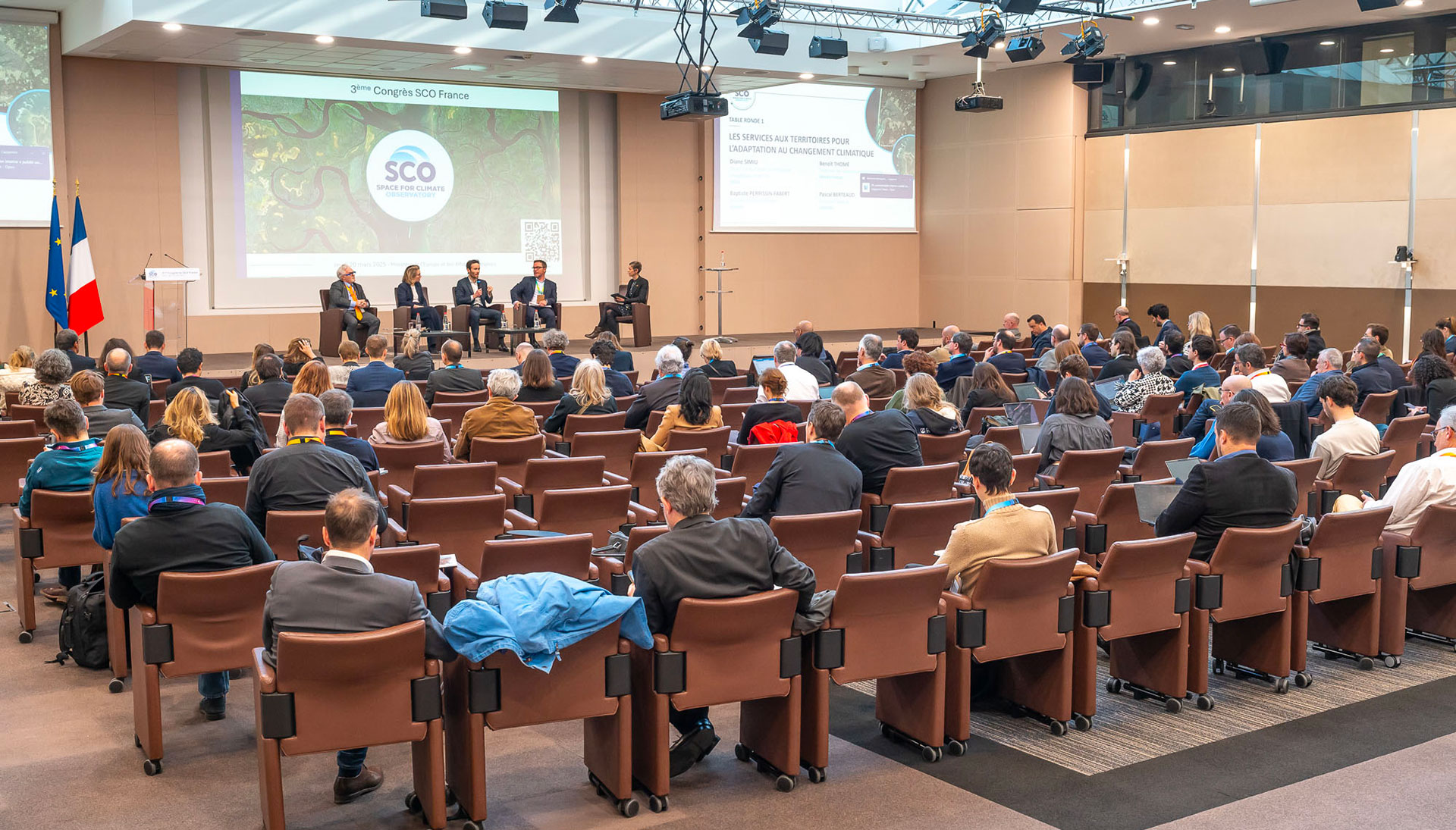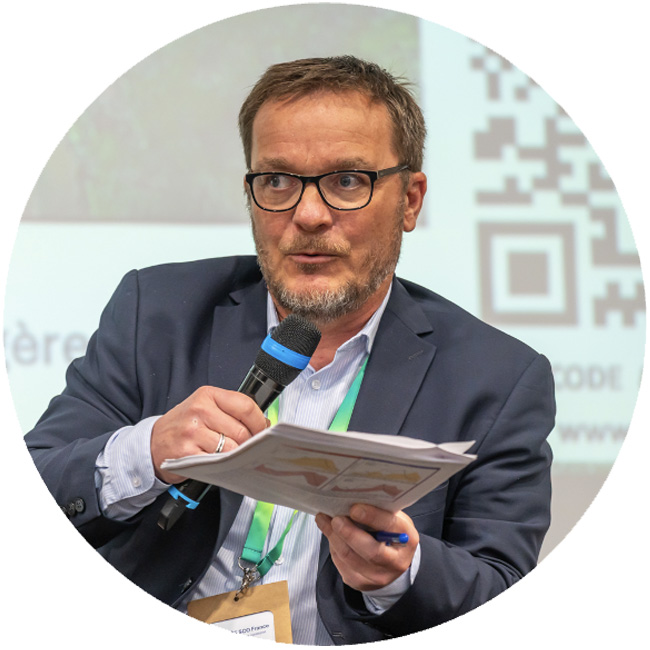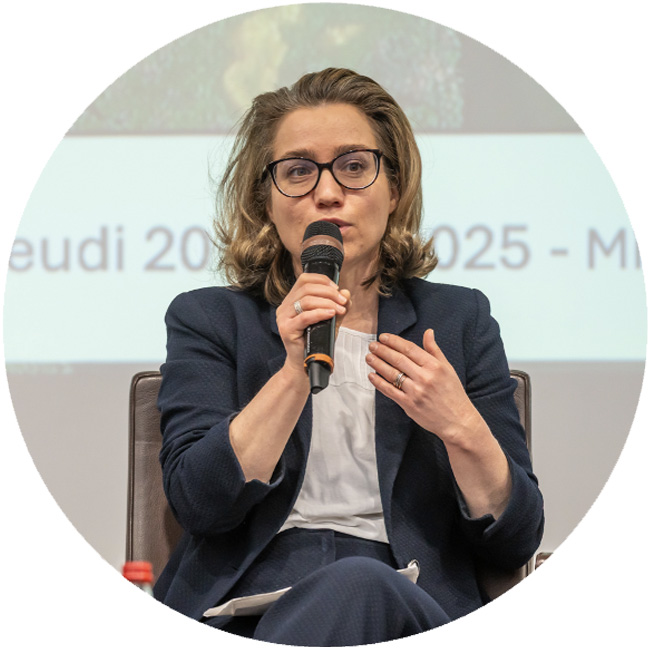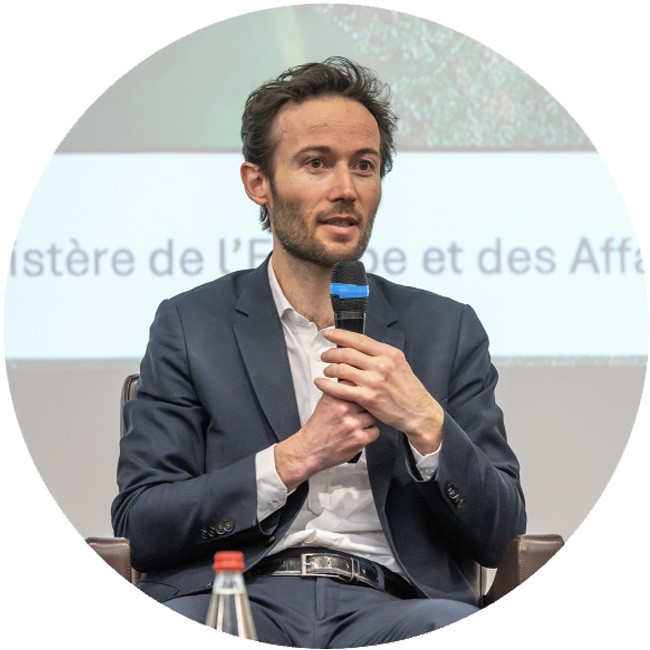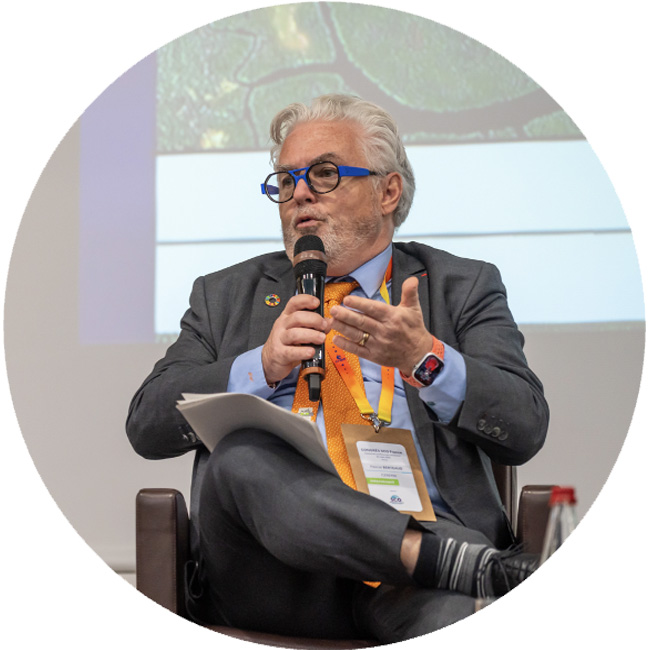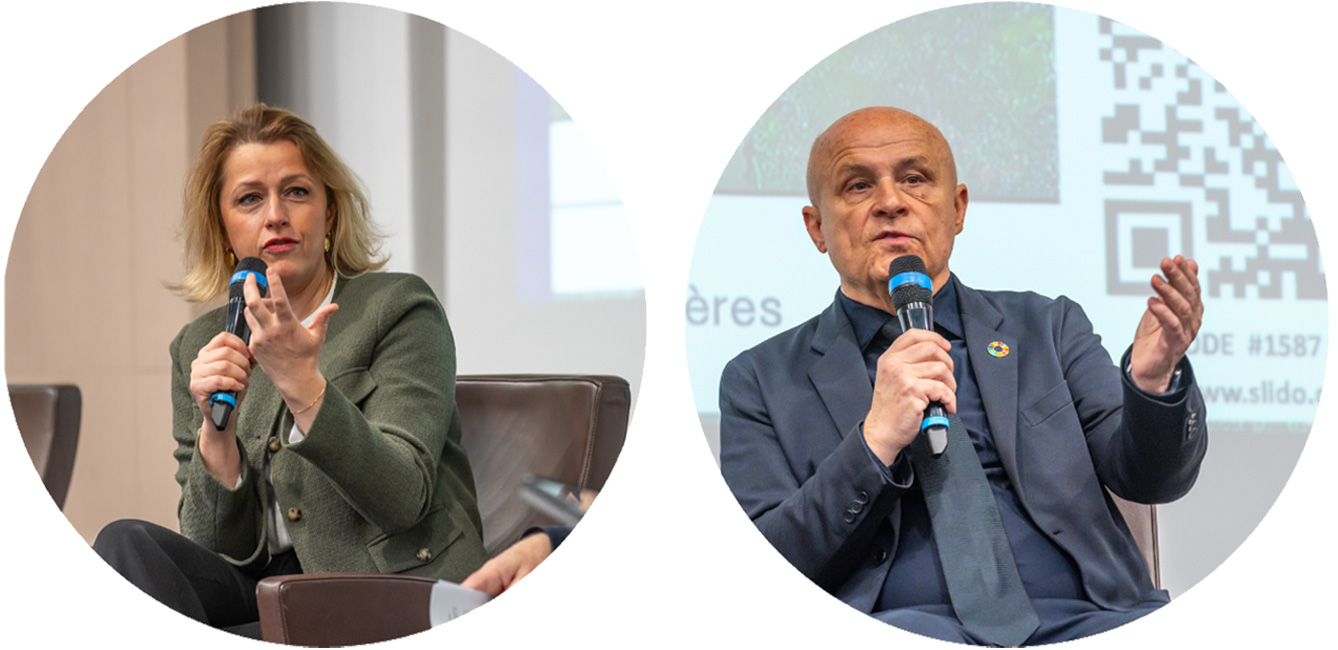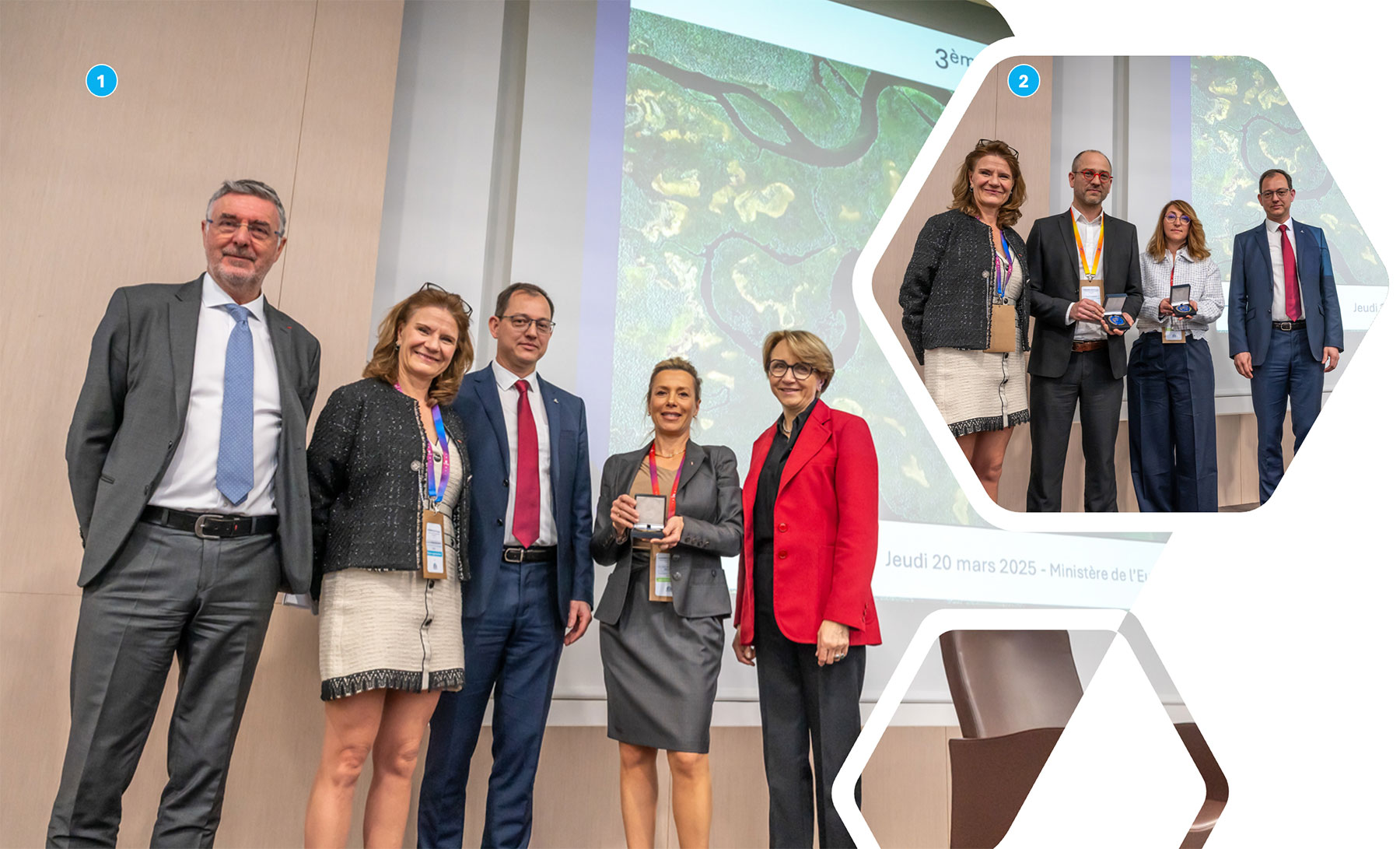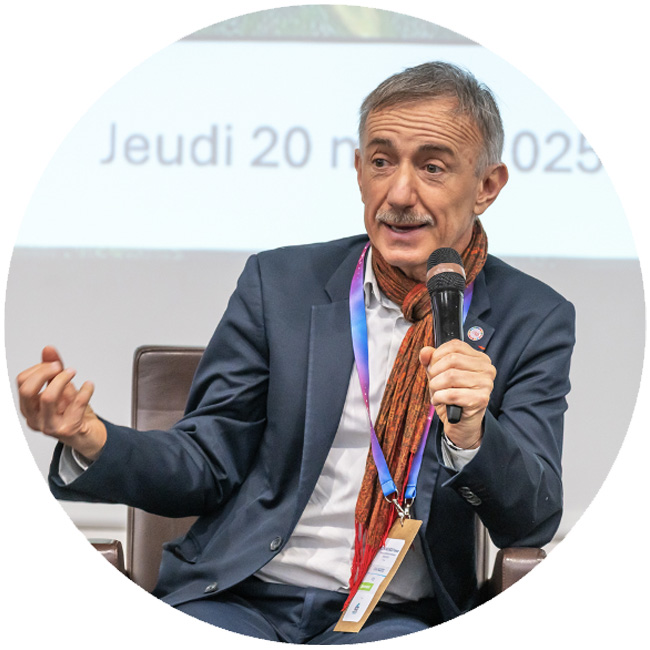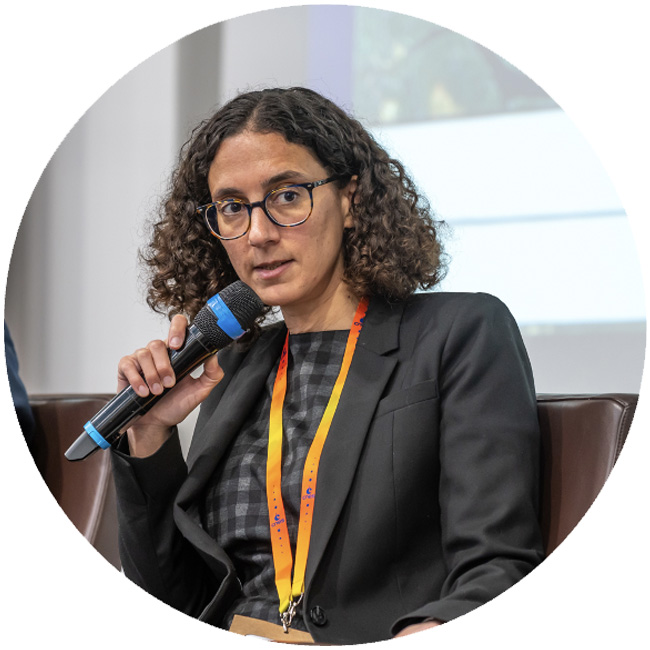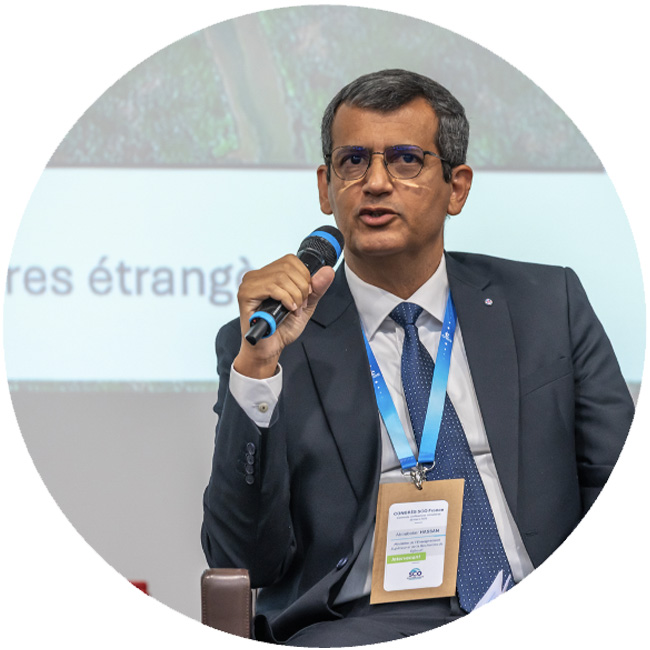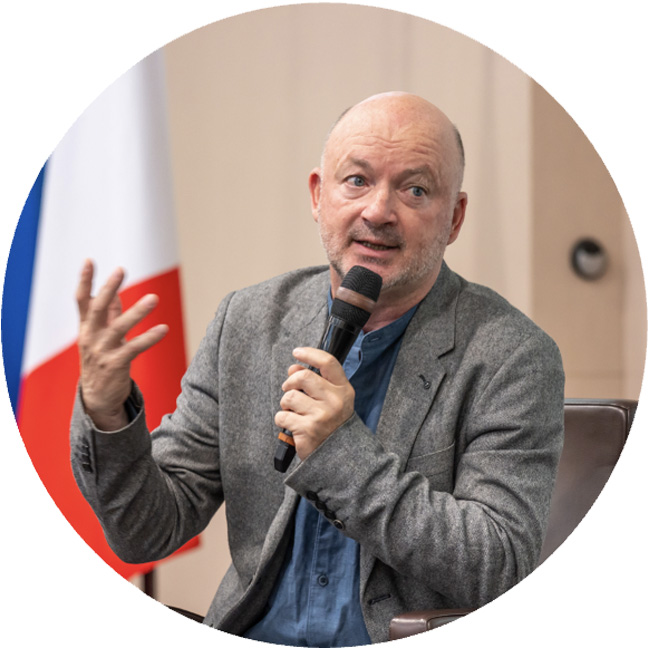3rd SCO France Congress: Observe, Cooperate, Act
Space at the heart of climate
A recurring event for the SCO France, this third Congress was held on 20 March 2025 at the Ministry of Europe and Foreign Affairs. Confirming the essential and strategic role of the SCO, it followed the first edition, held on 7 December 2021 at the Ministry of Ecological Transition in the presence of Minister Barbara Pompili, and the second edition, organized at the Ministry of the Economy, Finance and Industrial and Digital Sovereignty on 30 May 2023.
This year's discussions focused on national adaptation strategies and the global challenges faced by countries in the southern hemisphere, with high-level speakers and experts, as well as demonstrations of concrete solutions supported by satellite data. As a testament to our deep commitment to shaping the world of tomorrow, this congress also served as a platform for addressing today’s the major issues, including the third United Nations Ocean Conference (UNOC) and the 10th anniversary of the Paris Agreement.
Highlights
For those who would like to explore the discussions in greater depth, here is a medley of all our guests' contributions.
"We are not all necessarily aware of the central role played by space in our daily lives". With these words, Anne-Marie DESCOTES, Secretary General of the Ministry of Europe and Foreign Affairs, opened the Congress. She emphasized the growing importance of the space sector, which "addresses the global challenge of our century, the climate issue, [and is] also a powerful driver of development".
Taking the floor in turn, Jean-Marc ASTORG, Director of Strategy at CNES, confirmed these elements and the key role of the SCO, describing it as "a remarkable link between science and society", providing decision-making and resilience tools, many of which are freely accessible. "Well done to the SCO team, what you are doing is inspiring for us all".
Round table: Territorial services for adapting to climate change
|
The most likely climate scenario, known as TRACC (see opposite), puts France, which is warming faster than other countries, on a trajectory from +2°C in 2030 to +4°C in 2100. Based on this scenario, the speakers discussed the third PNACC, France’s National Plan for Adaptation to Climate Change, which was unveiled three days before the Congress. Aimed at better integrating future climate considerations into public and economic decision-making, this third PNACC marks a paradigm shift resulting directly from broad public awareness. It provides a single entry point to direct local authorities to the relevant offerings of various state operators, it will be enshrined in the Environment Code. With a budget of €1.6 billion, its guiding principle is: "not one euro for projects that are not resilient to the future climate". Overall, the discussions emphasized the need to anticipate in order to adapt all regions and all sectors. Particular attention was drawn to the road and electricity networks - systems not usually associated with climate action, yet critical under the projected conditions. |
TRACC, the reference warming trajectory for adapting to climate change
By 2100, at +4°C in France, this scenario would increase the risk of heatwaves by a factor of 10 compared with today, with heatwaves lasting 40 to 60 days, compared with 15 at present. With an increase in precipitation in winter and a decrease in summer, such a change of pace would lead to a risk of flooding and drought 40% more likely than in 2025, when sea levels would rise by 70 to 80 cm, with the associated risk of marine submersion. Météo-France is offering new tools to help everyone adapt: Climadiag commune for every region and every citizen, Climadiag chaleur en ville and Climadiag Agriculture. |
Selected extracts and use of satellite data:
|
Benoît THOME, Director of Institutional Relations, Météo France: "To monitor climate change and improve weather forecasting, Météo-France's ARPEGE model assimilates 33 million data items every day, including 30 million from satellites". |
Diane SIMIU, Director of Climate, Energy Efficiency and Air, the French Ministry for the Ecological Transition: "Adapting does not mean giving up [on the 2°C of the Paris Agreement]. The PNACC includes 52 measures and more than 200 concrete actions [to] protect people, essential infrastructure and services in the regions, as well as our cultural and natural heritage". |
Baptiste PERRISSIN-FABERT, Acting Deputy Director General, ADEME: "Over the last ten years, many local authorities have faced the effects of climate change and realized they need to take on this cross-cutting and territorial issue. [...] Space provides the data needed todiagnose and act accordingly, as shown by the SCO Thermocity and Sat4BDNB projects". |
Pascal BERTEAUD, Director General, CEREMA: "You get what we pay for [...] we have everything we need to succeed. [...] The Local Climate Zones maps developed through the SCO SatLCZ project have provided urban areas with a clear vision of urban heat islands, to guide planning decisions. Without satellite data, available uniformly across the country and in a real-time, this wouldn't be possible". |
Dialogue: International Agenda 2025: challenges and prospects
|
With Barbara POMPILI, Special Envoy of the President of the French Republic for the One Water Summit, Ambassador for the Environment, and Olivier POIVRE D'ARVOR, Ambassador for the Poles and Maritime Issues, Special Envoy of the President of the French Republic for the United Nations Ocean Conference. |
|
Recalling the creation of the SCO during the first One Planet Summit, the discussion focused on the key role of space data in strengthening international cooperation and climate diplomacy, as well as science as a vector for peace. Highlighting the key issue of water, Barbara POMPILI summed it up clearly: "Water is to adaptation what energy is to mitigation". For his part, Olivier POIVRE D'ARVOR expressed high hopes for the 3rd United Nations Ocean Conference (UNOC), to be held in Nice in June 2025: "We are at a turning point where the ocean is gaining recognition in global governance". On this occasion, the Space4Ocean alliance will be launched, with contributions from the SCO. Other priorities for 2025 include the 10th anniversary of the Paris Agreement and the start of negotiations on a global plastics treaty.
Sharing, cooperation, action, transparency: our values unite us and prove that strength lies in unity. Three new members took the opportunity of the Congress to join the alliance by signing the SCO Charter:
|
|
Round table: Cooperation with countries in the South, using space to promote sustainable development
6 billion people live in developing countries, which are particularly vulnerable to the impacts of climate change. In regions where in situ data is often lacking, satellite data plays a key role in developing adaptation tools, especially early warning systems for climate disasters. To maximize their impact, co-construction is essential, with the major challenges including data access, capacity building, integrating data into public policies and raising awareness among both decision-makers and the general public.
Selected extracts:
|
Gilles KLEITZ, Deputy Director of Science, IRD: "At the heart of extreme North/South tensions, satellites give legitimacy to data. [As a partner in several SCO projects,] the IRD uses satellite data to decipher and analyze the interactions between environmental parameters and societal dynamics". |
Yasmine GALLOUL, Deputy Head of the Entrepreneurship and Innovation Department, Expertise France: "With a presence in 150 countries, we can see that countries in the South face major challenges in accessing and using environmental data - lack of infrastructure and governance framework, dependence on foreign data - [which hinders both their sovereignty and their economic development". |
Aboubaker HASSAN, Secretary General,Ministry of Higher Education and Research in Djibouti, head of Djibouti's space programme, and member of the SCO since October 2024: "We face a huge challenge in raising awareness, not only among political leaders but also within the local population, who must understand that many of the issues they face - hunger, thirst, disease, etc. - can be fully resolved through remote sensing and space sciences which they often criticize due to funding priorities". |
Alix ROUMAGNAC, President, Predict Services: "For early warning, has become immensely important. [Powered by COSPARIN rainfall data updated every 30 minutes,] the warning system developed under the SCO Gade Lapli project [anticipates] flood-prone areas enabling timely evacuations before heavy rainfall. Deployed in Haiti, we are now implementing it in other countries". |
The SCO projects are an invitation to travel around our planet, through the eyes of four project leads who shared their experiences.
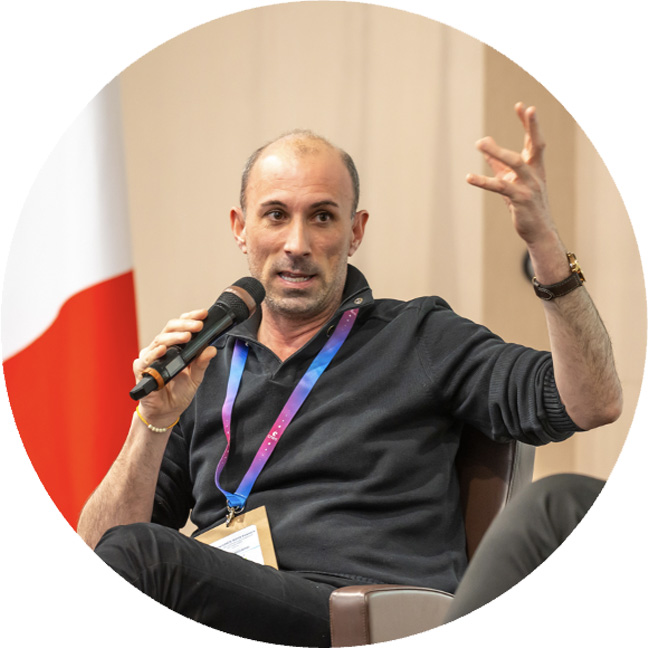 |
"All trees are good for people, but not necessarily for air quality." Pierre SICARD, ACRI-ST, GreenSpace project to map all urban trees and assess their influence on pollution, identify areas to be renatured and determine which species should be prioritized. |
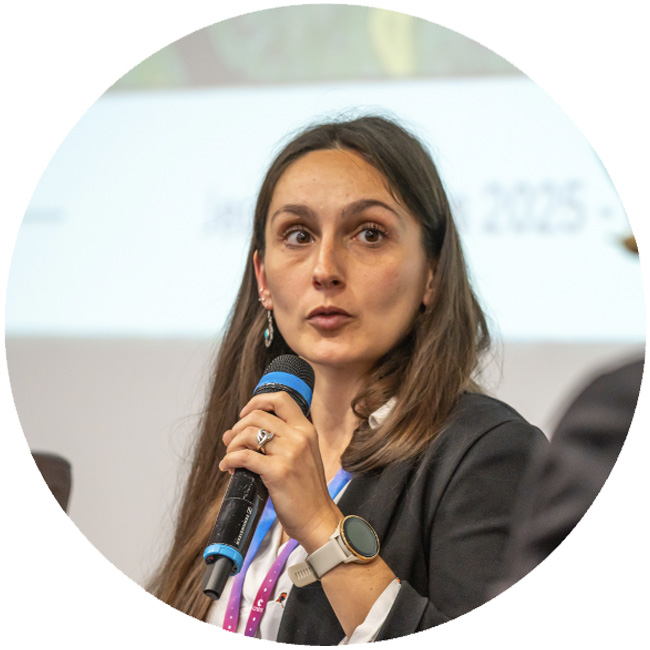 |
"Mapping the Southern Territories means giving them a memory and a way of protecting themselves for the future." Diane ESPEL, University of Rennes, Cartovege project to plan actions to restore or preserve natural habitats and biodiversity in the French Southern Territories. |
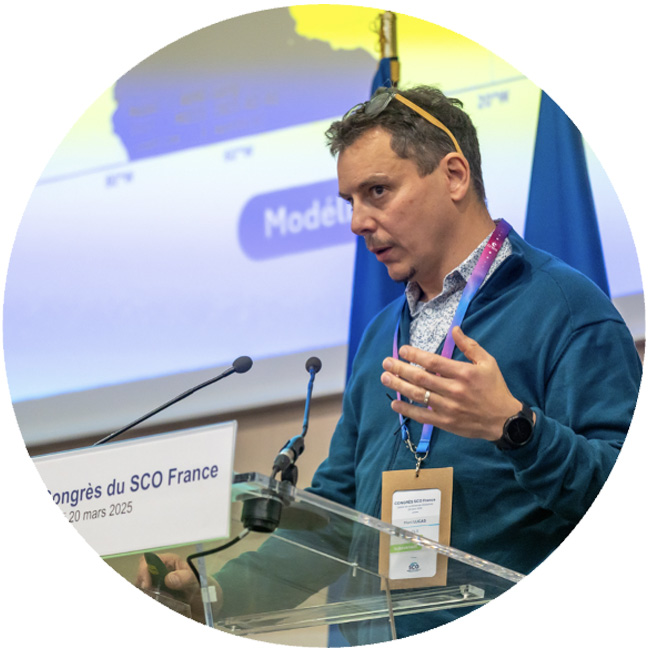 |
"The first step in providing a solution for local communities is to understand the phenomenon and monitor it in real time." Marc LUCAS, CLS, SeSaM project to detect sargassum seaweeds in the ocean and predict beach landings up to three months in advance. |
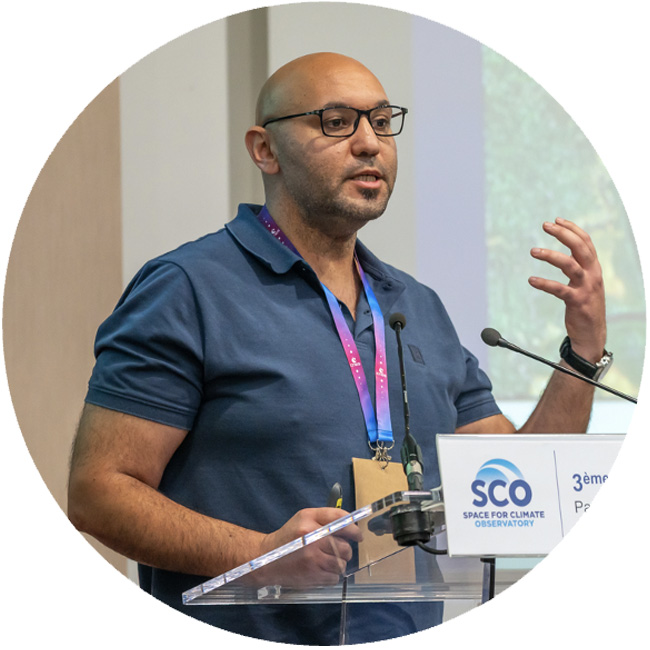 |
"Beyond integrating data, the SCO has enabled us to implement an interface that transfers knowledge into decision-making." Anis GUELMAMI, Tour du Valat, AionWetland project to automate the monitoring of Mediterranean wetlands with, in addition, indicators of environmental pressures along with recommendations for conservation or restoration. |
Announcement of the winners of the SCO 2025 Call for Projects
The morning ended with the announcement of the 16 winning projects of the SCO France 2025 Edition. Theirproject leaders were officially awarded the SCO label.
"The SCO is a collective commitment. [...] At a time when climate and geopolitical tensions are rising, confronting people with major challenges and creating anxiety, we are mobilizing more than ever to provide solutions for the regions, including the most vulnerable. Thank you to all those who contribute to the vitality of the SCO and to all of you who have joined us for this Congress." Laurence Monnoyer-Smith, Director of Sustainable Development at CNES
Photos © CNES/H. Piraud



